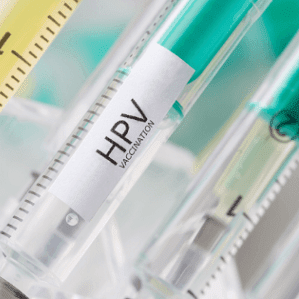Recent studies from the USC Head and Neck Center have uncovered alarming disparities in HPV awareness and vaccination rates among different demographic groups in the United States. These findings highlight a critical gap in public health knowledge, particularly affecting minority communities.
The research reveals that less than one-third of Americans are aware of the link between human papillomavirus (HPV) and throat cancer, which has now surpassed cervical cancer as the most common HPV-related malignancy. Even more concerning, fewer than 7% of eligible adults have completed the full three-dose course of the HPV vaccine.
Dr. Daniel Kwon, a head and neck surgeon involved in the study, expressed worry over these findings, stating, “The public is missing crucial information about the link between throat cancer and HPV, as well as the fact that vaccines may prevent HPV-related throat cancer.”
The studies also exposed significant disparities in vaccination rates based on socioeconomic status, race, education level, and access to healthcare. Men, Asian Americans, African Americans, Hispanics, and those without a personal healthcare provider were found to be less likely to be vaccinated.
Dr. Niels Kokot, another researcher, pointed out various factors contributing to low vaccination rates, including limited awareness, insufficient advertising compared to other vaccines, and growing vaccine hesitancy. The lack of improvement in awareness, with only a 2.5% increase from 2018 to 2020, underscores the urgent need for targeted public education campaigns.
These disparities in knowledge and vaccination rates among minority communities are particularly troubling, as they contribute to ongoing health inequities. With HPV infecting millions of Americans annually and causing 70% of all throat cancers, addressing this knowledge gap is crucial for public health, especially in underserved populations.
Healthcare providers are urged to discuss HPV vaccination with eligible adults, particularly those from minority communities, to bridge this critical gap in prevention and awareness.
See “Americans are uninformed about and undervaccinated for HPV” (December 10, 2024)



